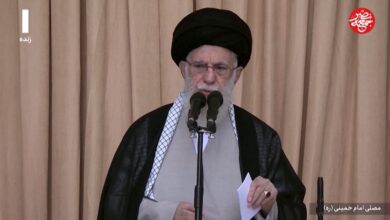A pair of academics have blamed President Hosni Mubarak and Israel for their role in the Nile Basin crisis after a move by five Nile Basin countries to disregard Egypt and sign a new treaty organizing the exploitation of the Nile waters.
Ethiopia, Kenya, Rwanda, Tanzania and Uganda, all upstream countries, signed a pact earlier this year toward what they consider an equitable use of the Nile waters. Under the treaty, Addis Ababa intends to build dams and export power to neighboring countries, while also setting up irrigation projects. The pact has been condemned by Egypt and Sudan, who fear it would reduce the river's flow.
At a conference at the Journalists Syndicate on 14 October, Ibrahim Nasser Eddin, professor of African Studies at Cairo University, accused the Egyptian government of being responsible for the recent crisis. "The government doesn't understand the racial, religious and linguistic complexities in East Africa. The government is completely ignoring this part of the world despite its strategic importance."
Nasser Eddin suggested that Egypt is not engaging well with the changing balance of power in East Africa, especially after the 2006 fall of the Somalian Islamic Courts Union government and the increasing regional control of Ethiopia, backed by the United States.
"The fall of Somalia and leaving it to Ethiopia broke the balance in the region," said Nasser Eddin. Eritrea's President Isayas Afewerki has visited Egypt 18 times since his country’s independence, while Mubarak has never visited Eritrea, he added, which, he said, indicates Egypt's careless politics towards the region.
Moreover, Abdullah al-Ashaal, former ambassador to several East African countries and professor of international law at the American University in Cairo, said that former Egyptian Foreign Minister Amr Moussa, currently the Arab League's secretary-general, is responsible for not paying attention to East Africa and for giving Israel the chance to expand there.
"He told us [Egyptian ambassadors to Africa] in 1994 that you have no relation with politics. He has all the necessary information about Africa," said al-Ashaal. According to al-Ashaal, Moussa’s remarks show how Egypt has moved away from dealing with the changing political context in Africa.
Al-Ashaal also dismissed the proposition that the Nile Basin crisis is centered around the nature of the current legal framework, which gives Egypt domination over the exploitation of the Nile.
East African countries have been complaining about the negative effects of the 1929 colonial-era treaty with Britain, which empowers Egypt to veto any irrigation or hydro-power projects proposed for implementation by upstream countries.
The treaty states in its Article II that "no irrigation or power works or measures are to be constructed or undertaken on the river and its branches […] so far as these are in the Sudan or in countries that are under British administration, which would, in such a manner as to entail any prejudice to the interests of Egypt, either reduce the quality of water arriving in Egypt, or modify the date of its arrival, or lower its level."
Al-Ashaal argued that there is no legal crisis in this regard, because all the calls coming from the East African countries are politically motivated and ignited by Israel, which has been interfering in the internal politics of East African countries, especially Ethiopia.




